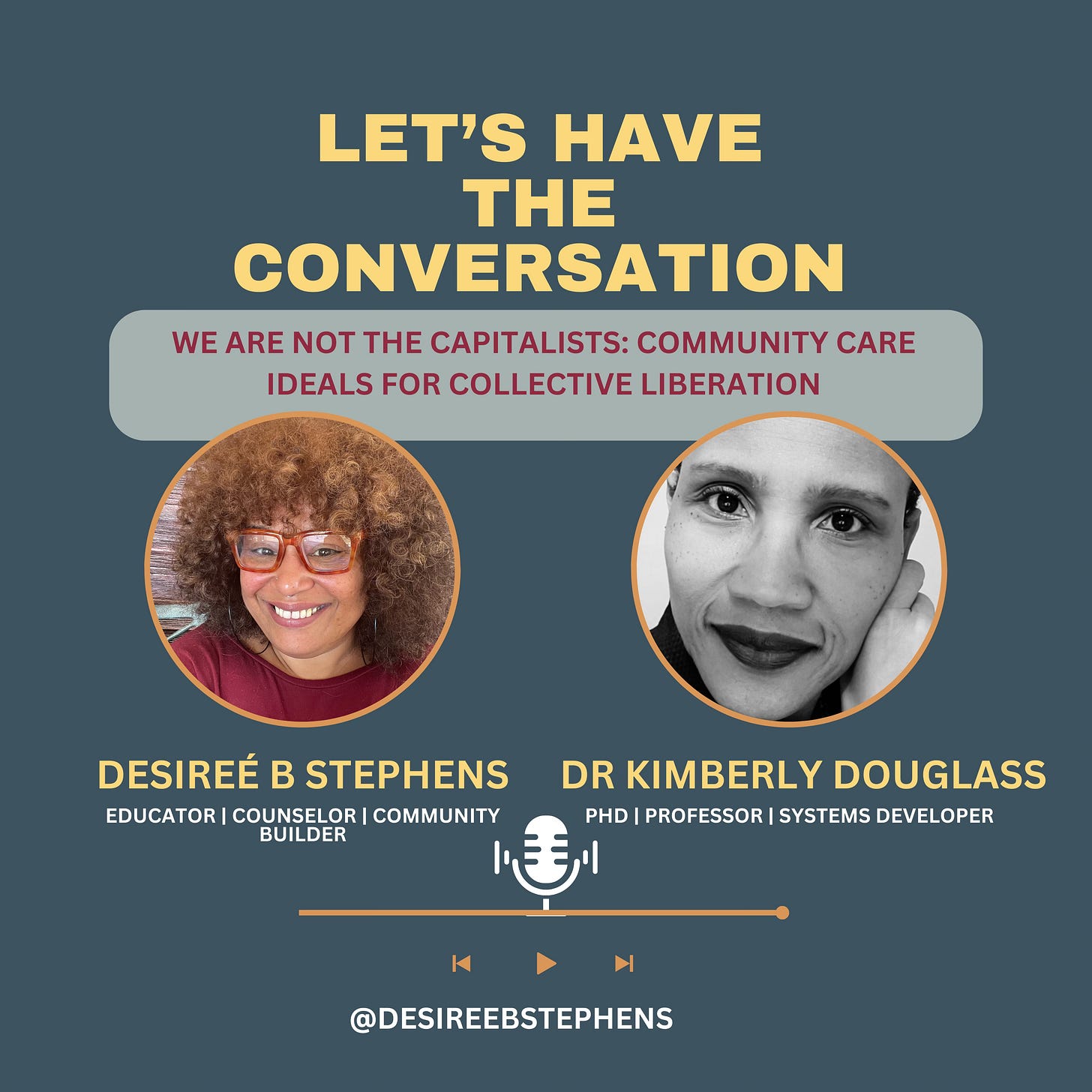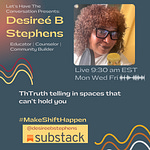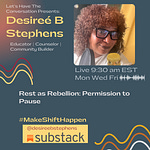In a powerful and playful episode of Let’s Have the Conversation, I was joined by Dr. Kimberly to explore the complexities of navigating life in a capitalist world while prioritizing community care and collective liberation. Together, we unpacked the personal and systemic challenges that come with balancing work, family, and financial stability in a society that often forces us to value productivity over people.
This conversation is a deep reflection on how capitalism undermines our ability to build strong, supportive communities and forces many to live in a constant state of survival. It pushes us to confront the question: What does it mean to truly care for one another in a system designed to pit us against each other?
Valuing Work Without Exploiting Ourselves
One of the core themes in this episode was the tension between valuing our work and resisting the exploitative nature of capitalism. For both of us, as entrepreneurs, educators, and community builders, there’s a constant pull to make our work financially sustainable. The reality, though, is that capitalism often demands we sacrifice our well-being, family time, and even our own values to achieve that sustainability.
But what if there’s another way? Dr. Kim and I both recognized that collective action and mutual support can help us move beyond individualistic models of financial success. One strategy we discussed is moving toward a fully paid model for our services—a model that honors the worth of our labor while providing options like scholarships for those unable to afford it. This is about reclaiming the narrative around financial worth without buying into the lie that we must hustle endlessly just to survive.
Financial Struggles in Community Building
Another key discussion point was the impact of financial instability on community dynamics. Capitalism thrives on disparity—encouraging competition even among those of us who are trying to build solidarity. Financial struggles can fracture communities, as individual needs sometimes overshadow collective ones.
Both Dr. Kim and I have seen firsthand how this plays out. I shared a personal story about receiving unexpected financial support during a tough year, and we reflected on how moments like these offer glimpses into what true community care looks like—mutual aid, shared resources, and the ability to survive and thrive together. We also acknowledged that financial barriers can erode solidarity if not addressed directly.
The Challenges of Collective Liberation in a Capitalist Society
We cannot talk about liberation without critiquing capitalism. As Dr. Kim and I delved deeper into this, we explored the harm that capitalism does to marginalized communities, particularly those who are not wealthy or white. There’s an inherent violence in a system that forces people to work multiple jobs and still live paycheck to paycheck, while billionaires hoard resources.
We touched on the need for bold, systemic solutions, like universal basic income and healthcare reform, and we asked how we can create models of care and community that reject capitalist values while we’re still forced to operate within them. The key, as we see it, is in building relationships and communities grounded in reciprocity, shared knowledge, and collective power.
Building Supportive Communities Beyond Competition
Throughout the episode, Dr. Kim and I circled back to the power of community building as a pathway to liberation. One idea that emerged was my plan to launch a “Find 5 Friends” campaign—a way for individuals to engage in community-building exercises that encourage connection, collaboration, and care.
We also discussed practical strategies, such as encouraging group purchases and subscriptions, which could relieve some of the financial pressure we both face in our businesses. By making community building intentional and sustainable, we can create spaces where people are invested in each other’s well-being rather than just their own survival.
Aligning With Natural Cycles and Prioritizing Self-Care
Another crucial element of the episode was our discussion on aligning with natural cycles, particularly for those of us who are neurodiverse or experience mental health challenges. We live in a society that values constant productivity, but nature operates in cycles of growth, rest, and renewal.
I shared my personal practice of using the winter months as a time for introspection, planning, and preparation—like a farmer gathering the harvest. This period allows us to gather our resources, knowledge, and energy for future work. Dr. Kim echoed the importance of honoring these natural cycles and using them to inform how we care for ourselves and others.
Community Care as a Pathway to Liberation
At the heart of our conversation was the idea that community care is a radical act of resistance. In a world that values individualism and competition, choosing to prioritize the well-being of others, to share resources, and to collectively work toward liberation is nothing short of revolutionary.
We are not the capitalists, and we don’t have to buy into the scarcity mindset that capitalism thrives on. There’s enough for all of us if we choose to care for each other, lift each other up, and build the kinds of communities that nurture us all.
As we move forward with our plans—whether it’s the transformation of my TikTok into a long-form learning platform, the development of resource lists, or our commitment to time management in this work—the goal remains the same: to create spaces where collective liberation and community care are not just ideals, but practices we live out every day.
This is our path forward. It’s not easy, but it’s necessary. Because we believe that true liberation isn’t just personal—it’s collective. And the only way we get there is together.
In solidarity and liberation,
















Share this post